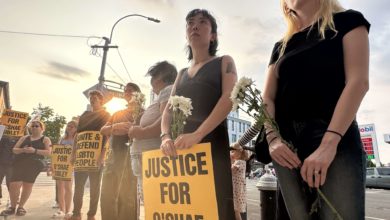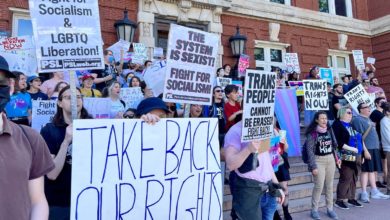On October 6, 1998, 20 years ago, a young University of Wyoming student named Matthew Shepard was found close to death outside the city of Laramie, Wyoming. His murderers, Aaron McKinney and Russell Henderson, two young roofing workers, had robbed, beaten and tortured Shepard before tying him to a fence post in near-freezing winter temperatures, leaving him there for 18 hours before he was discovered by a cyclist. After spending six days in a coma in intensive care, with injuries so serious doctors could not operate on his face, Shepard passed away on October 12.
Shepard was a 21 year-old gay man from Casper, Wyoming, a city 150 miles north of Laramie. Throughout high school, he had experienced bullying, homophobia, and physical violence. His challenging adolescent years drove him to a passion for politics and equality. After moving between several colleges, he eventually settled at the University of Wyoming to study political science.
Much like the bullying we underwent early in life, his murder was rooted in homophobia and a violent, defensive version of masculinity. McKinney and Henderson had targeted Shepard that night at the Fireside Lounge bar, convinced him that they too were gay, and offered to give him a ride home. According to their defense proceedings, the two men did not initially intend their actions to lead to a murder, instead planning to rob and humiliate him. However, they alleged that when Shepard, who had been led to believe that his to-be assailants were gay, placed his hand on McKinney’s knee, McKinney became enraged and attacked.
McKinney’s attorney attempted to use a tactic now known as the Gay Panic Defense. This is a defense in which the assailant claims they were acting under the influence of “temporary insanity” brought on by unwanted advances from a gay person. This defense has usually been brought out to avoid premeditated murder charges. The persistence of this dangerous legal precedent, frequently used to deny justice to LGBTQ victims of violent hate crimes, is a damning reflection of the homophobia and toxic version of masculinity that have long been so deeply entrenched and normalized in our society.
While the men escaped charges of premeditated murder, both received consecutive life sentences, for attempted murder, kidnapping and aggravated robbery. They are both currently serving their sentences in medium security facilities in Wyoming.
It’s easy to characterize the murder of Matthew Shepard, which provoked nation-wide outbursts of anger, candlelit vigils, and protests as something belonging to a different time. However, calls to reform hate crime laws to include gay people only resulted in partial legal reforms as late as 2009. While 1998 is not quite the distant past, attitudes towards homosexuality — thanks in no small way to decades of struggle by the gay liberation movement for both basic democratic and more substantial human rights — have changed greatly. However, 20 years later, 20 U.S. states still do not have hate crime laws that address sexual orientation.
As antiquated as the Gay Panic Defense may seem from our viewpoint, only three states (California, Rhode Island, and Illinois) have banned its use in court. In fact, in 2015, the defense was successfully used in the case of Daniel Spencer, a 32-year-old gay man in Texas whose murderer — a neighbor who stabbed him to death — had his charge reduced to criminally negligent manslaughter.
While it is clear that our society has changed, and further great changes driven by mass struggle are clearly in motion, gay people and the LGBTQ community at large still suffer immense bigotry and risks to their physical safety, from hate crimes to housing, healthcare and employment discrimination to police violence. According to the Bureau of Justice, 22 percent of all hate crimes are committed based on sexual orientation, despite the 20 states that still do not acknowledge this classification. 2016 was noted as the deadliest year on record for LGBTQ people, with 28 individual murders recorded and the Pulse Nightclub shooting claiming 49 lives. Trans people are also seeing rising violence, with trans women of color making up a disproportionate percentage of people murdered in hate crimes, while local and state law enforcement agencies offer no support or protection. If the general views that characterize our society have advanced so far, why is violence still on the rise, and facing no concerted backlash from the powers supposed to represent us?
The system in which we live has no interest in offering meaningful protection for oppressed peoples. Not only does the profit process under capitalism encourage the division of the working class into hierarchical and antagonistic groups, it also relies on the nuclear family as a site for the reproduction of capitalist norms, and rigid, heavily policed norms of how gender and sexuality should be practiced by individuals. LGBTQ liberation would upset this system at its very roots. While reforms like marriage equality and the still-uncompleted work to classify anti-LGBTQ violence as hate crimes nationwide are important steps towards full democratic rights, real liberation will look like a much more radical breaking up of the entire framework of capitalism, a system based on competition, exploitation, and mutual indifference, instead of radical solidarity and collective welfare.
We can see how a socialist system allows for true progress by turning to Cuba, a country that has made tremendous strides towards combating not only social homophobia and transphobia, but also securing systematic social rights by ensuring healthcare, employment, and housing to LGBTQ people.
Matthew Shepard was neither the first nor last gay man to fall victim to violent homophobia. These tragedies will continue to occur until we are truly liberated from the system that thrives from our oppression and all people, led by the most oppressed, are given full democratic rights to be in charge of their own destinies. We must strike at the roots to put a permanent end to the bloodshed and pain caused by murders like those of Matthew Shepard.






